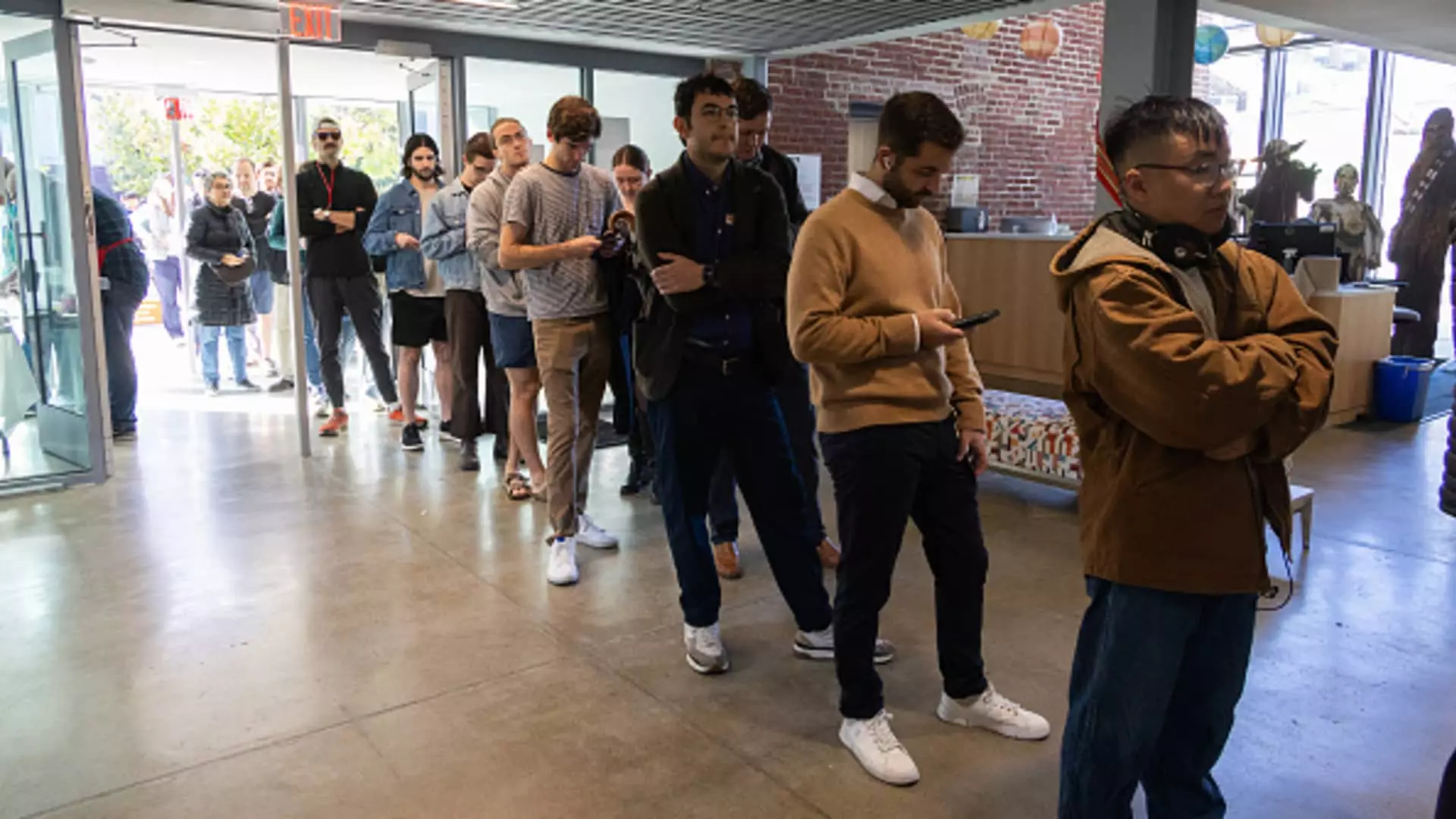In the lead-up to the recent election, it was evident that Americans were not just divided by party lines but were also starkly split along gender lines. The election saw a pronounced polarization between male and female voters, with women leaning toward Vice President Kamala Harris while men overwhelmingly supported President-elect Donald Trump. According to NBC News exit polls, Harris garnered 53% of women’s votes compared to Trump’s 45%, marking an 8-point lead. Conversely, Trump had a significant 13-point advantage among men, capturing 55% of their votes against Harris’s 42%. This 21-point gender gap reveals deep-seated societal divides and raises questions about the underlying factors that influenced these voting patterns.
A closer look at voter motivations reveals that economic issues played a pivotal role in shaping the preferences of male voters. Many men perceived a lack of economic mobility, leading to a sense of disillusionment. Julia Pollak, the chief economist at ZipRecruiter, articulated this sentiment, suggesting that men feel increasingly marginalized in today’s economy. While economic inequality has seeped into various demographics, the struggles of men—particularly those without a college education—have been exacerbated. A study by the Pew Research Center highlighted this trend, indicating that men in their prime working years, especially those with limited education, are exiting the workforce at alarming rates.
This exit is starkly contrasted with the educational progress of women. In the mid-1990s, young men and women were equally likely to hold a bachelor’s degree at 25%. Fast forward to today, and the disparity is concerning: 47% of women aged 25 to 34 possess a bachelor’s degree compared to only 37% of men. This educational gap is indicative of broader societal shifts and contributes to the feeling among men that they are being left behind amidst the changing economic landscape.
The Rise of NEETs and the Impact of Globalization
Moreover, the issue of young men becoming NEETs (Not in Education, Employment, or Training) reveals a significant social concern. Richard Fry, a senior Pew researcher, pointed out that this demographic has been the hardest hit by globalization and the decline of manufacturing jobs. With fewer opportunities to thrive in traditional blue-collar roles, many young men feel disillusioned and disengaged from the workforce. This disengagement translates to lower voter turnout when there is no immediate economic incentive to engage; as Fry succinctly put it, “When you don’t get rewarded for working, you work less.”
Against this backdrop, it makes sense that many younger men showed support for Trump during the election, perceiving him as a candidate who might address their economic concerns more effectively than Harris. Exit polls illustrated that men, particularly those lacking higher educational qualifications, were significantly more concerned that election outcomes would directly influence their financial futures.
On the flip side, women have been making tremendous strides in education and workforce participation, challenging traditional gender roles. They are increasingly focusing on career above marriage and family, with a growing demand for support systems such as universal childcare and access to reproductive care to accommodate their choices. Ali Bustamante of the Roosevelt Institute highlighted that contemporary women prioritize their careers more than in previous generations, as evidenced by trends delaying marriage and motherhood.
Despite reproductive rights becoming a hot-button issue during the election, its impact on overall voter turnout among women was not as significant as expected. Fatima Goss Graves from the National Women’s Law Center Action Fund noted that while women’s issues remained important, the economic struggles of a broad segment of the population overshadowed particular concerns regarding reproductive freedom.
Looking Ahead: The Future of Gender Politics
The electoral results raise an essential question about what lies ahead for gender politics in America. While this election showcased notable rifts, it also signifies that issues like paid leave, affordable housing, and equal pay are increasingly at the forefront of the discourse surrounding women’s rights. Graves warned against assuming that women’s activism will wane simply because they did not mobilize for certain issues in this election cycle; indeed, the fight for equality and comprehensive social support remains robust.
As we reflect on the implications of the election results, it becomes evident that understanding the nuances of gender perspectives is critical. With ongoing economic challenges and evolving societal values, the dynamics of how gender influences voting behavior will continue to play a crucial role in shaping the political landscape. While this election was just one chapter, it sets the stage for further discussions on gender, economics, and societal expectations as we move forward.

